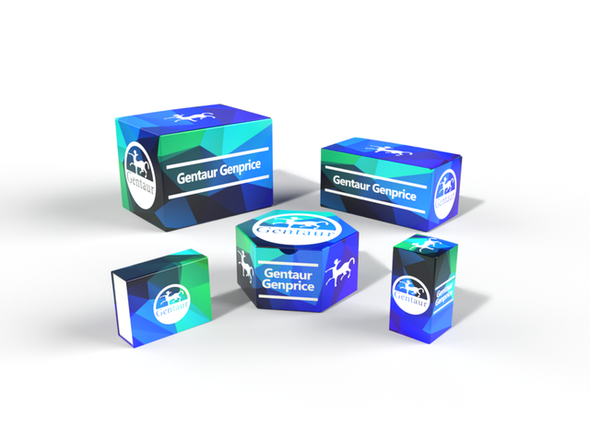BW
GNL1 (Q103) polyclonal Antibody | BS3312
- SKU:
- BW-BS3312
- Availability:
- Usually ships in 5 working days
Description
GNL1 (Q103) polyclonal Antibody | BS3312 | Gentaur UK, US & Europe Distribution
Host: Rabbit
Reactivity: Human,Mouse,Rat
Application: WB
Application Range: WB: 1:500~1:1000
Background: GNL1 (guanine nucleotide-binding protein-like 1) is a nuclear protein that likely acts as a regulator of the histocompatibility cluster. GNL1 and MMR1, the murine homolog, are localized within or close to the MHC class I region and belong to the MMR1/HSR1 GTP-binding protein family. GTPases, such as GNL1, from the MMR1/HSR1 GTP-binding protein subfamily are circularly rearranged G-motifs that play a critical role in maintaining normal cell growth. Deletion of these genes results in severe growth defects with a marked reduction in mature rRNA species and a concomitant accumulation of the 35S pre-rRNA transcript. Deletion also causes the ribosomal protein RPL25A to fail exportation from the nucleolus. Deletion of any of the G-domain motifs will result in a null phenotype and nuclear/nucleolar localization that lacks the nucleolar export of preribosomes and is accompanied by a distortion of the nucleolar structure. Upon DNA damage GNL1 is phosphorylated by a kinase, possibly Atm or ATR.
Storage & Stability: Store at 4°C short term. Aliquot and store at -20°C long term. Avoid freeze-thaw cycles.
Specificity: GNL1 (Q103) polyclonal Antibody detects endogenous levels of GNL1 protein.
Molecular Weight: ~ 69 kDa
Note: For research use only, not for use in diagnostic procedure.
Alternative Names: Guanine nucleotide-binding protein-like 1; GTP-binding protein HSR1; GNL1; HSR1
Immunogen: Synthetic peptide, corresponding to amino acids 80-120 of Human GNL1.
Conjugate: Unconjugated
Modification: Unmodification
Purification & Purity: The Antibody was affinity-purified from rabbit antiserum by affinity-chromatography using epitope-specific immunogen and the purity is > 95% (by SDS-PAGE) .
Pathway:






